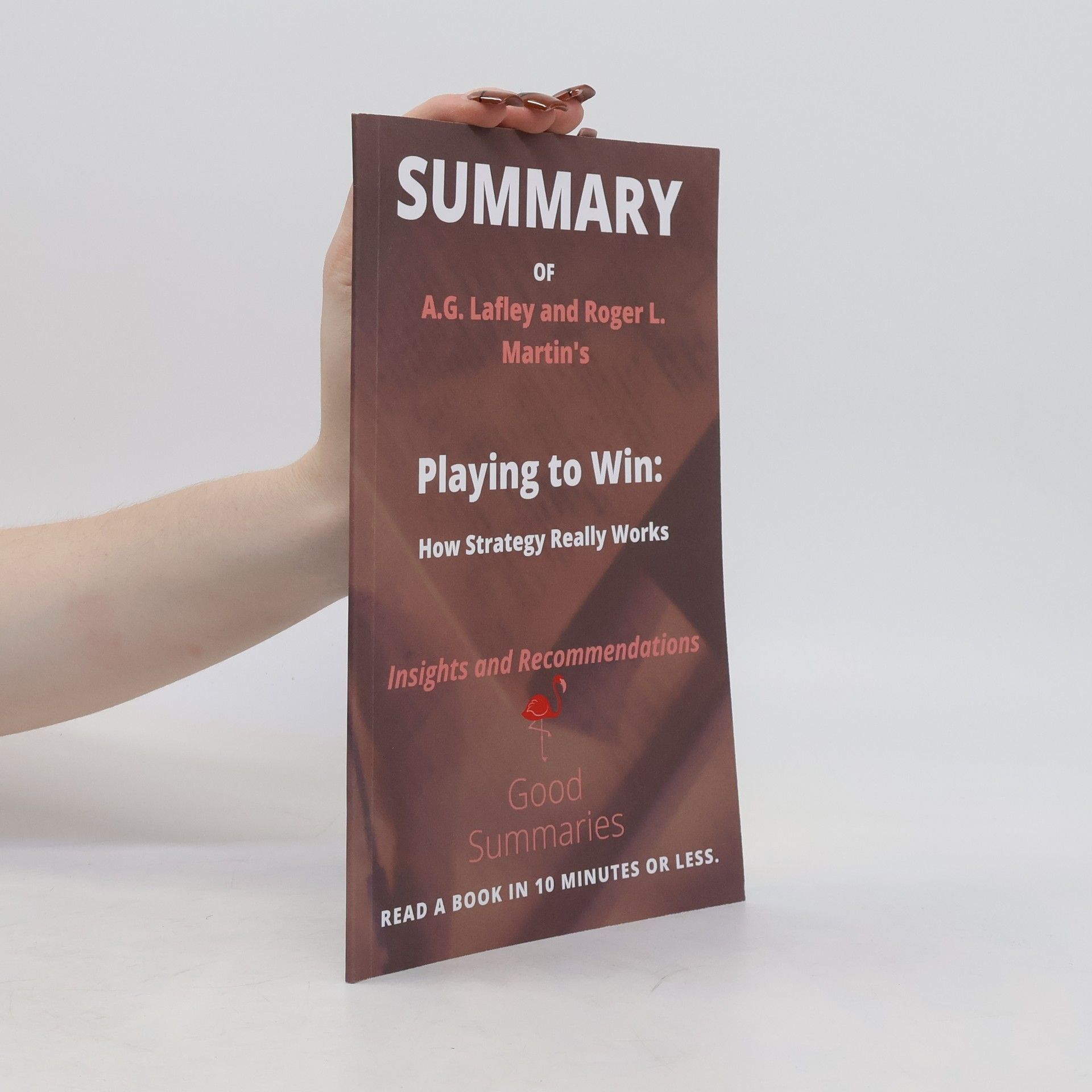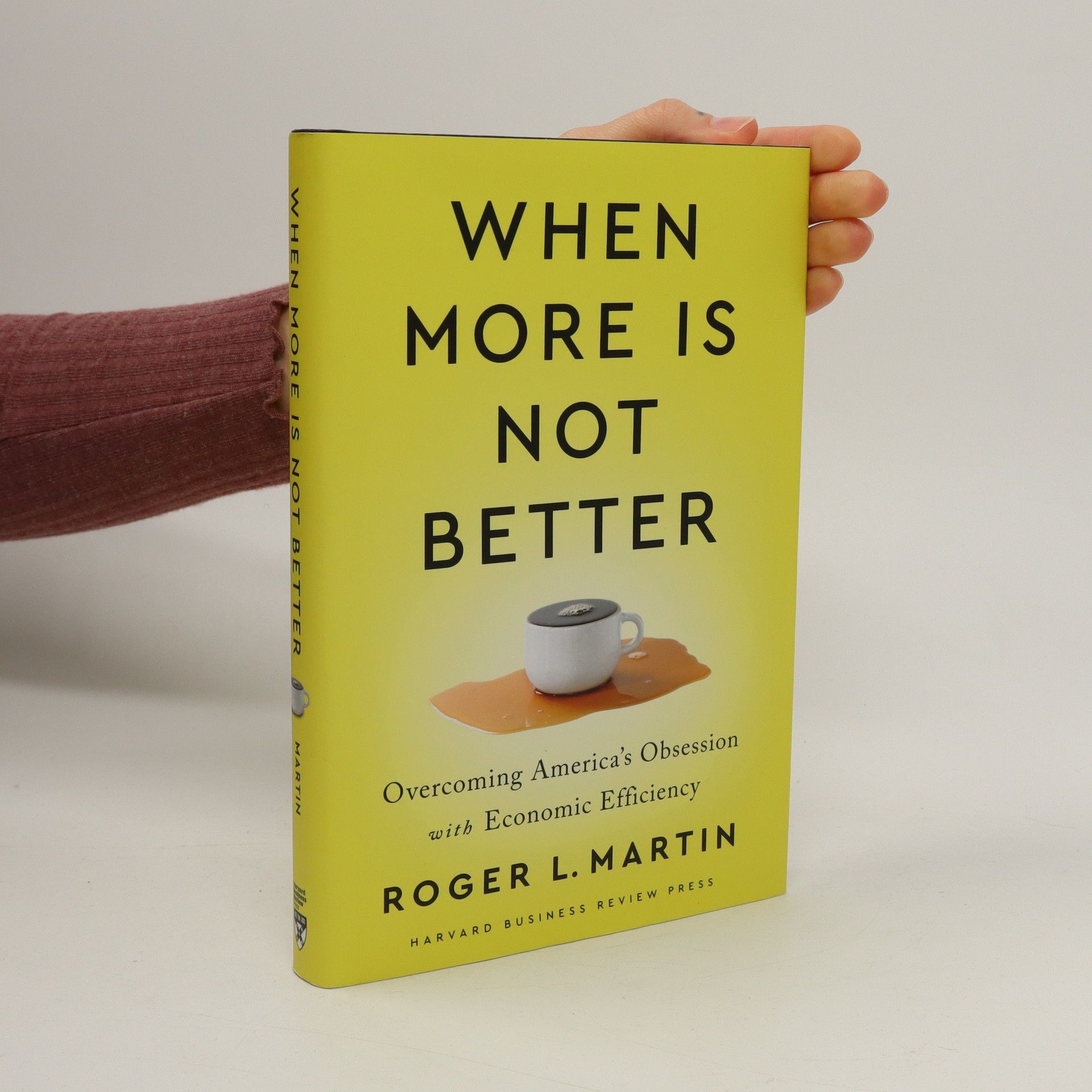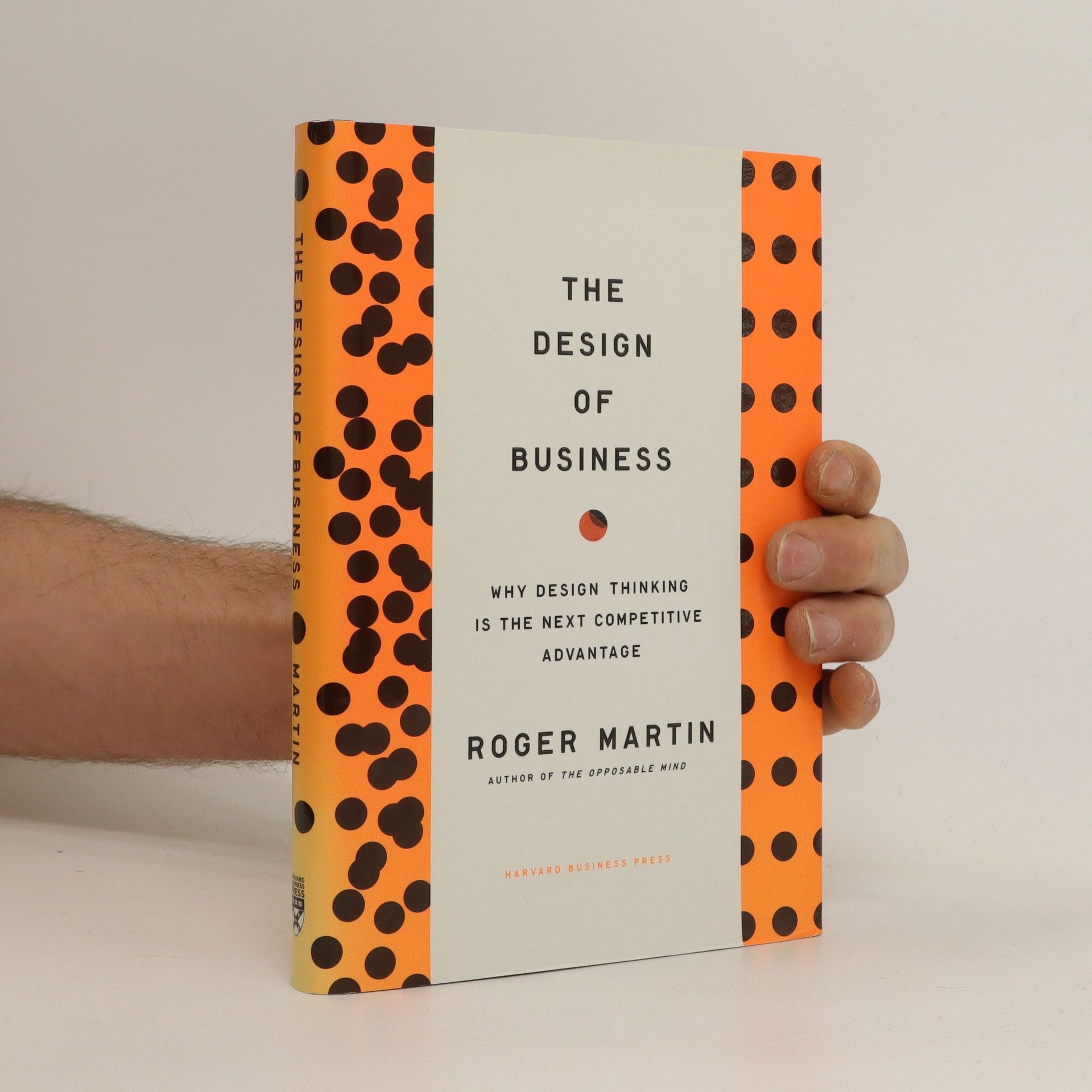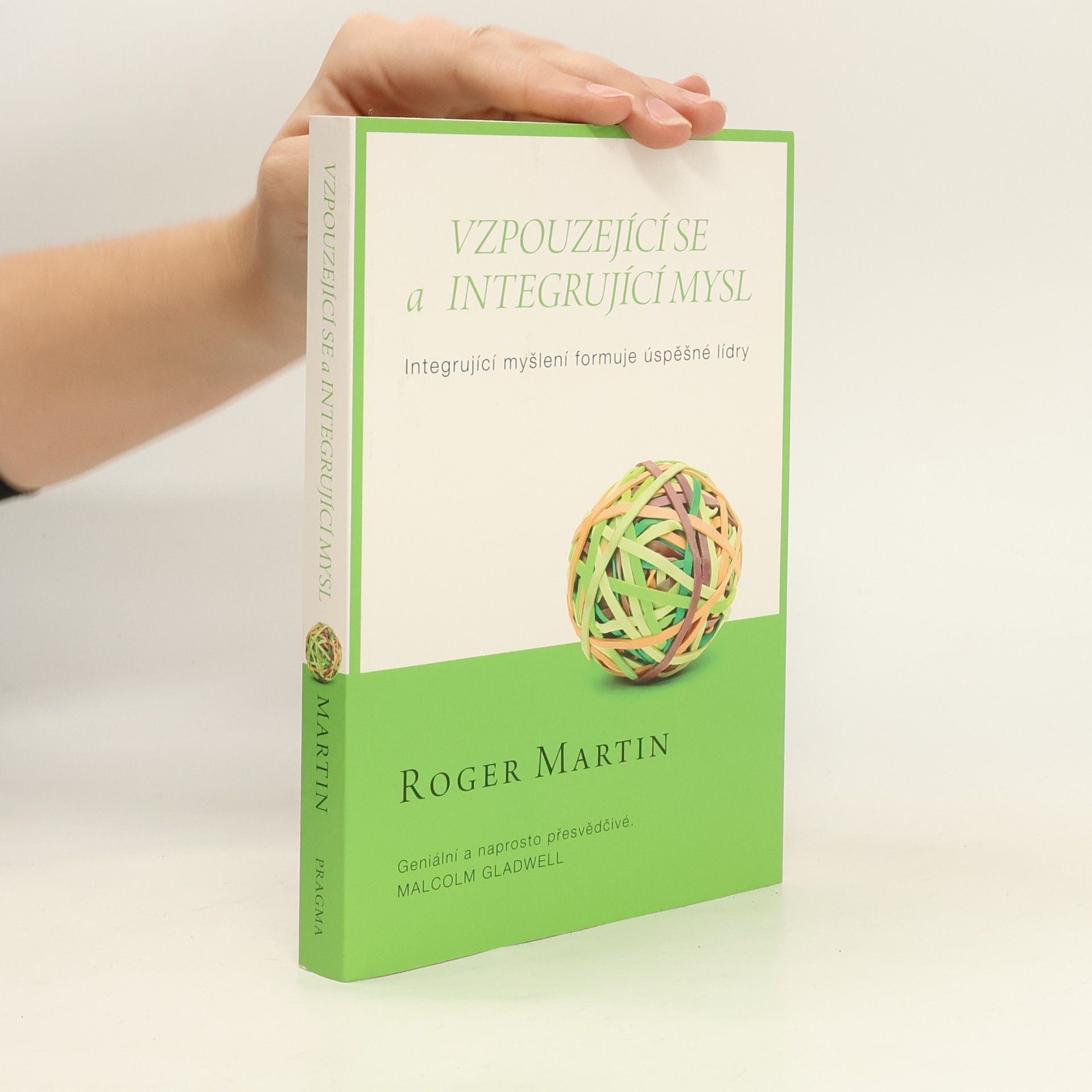Das Buch bietet praxisnahe Strategien zur Maximierung des Potenzials von Unternehmen. Es behandelt innovative Ansätze zur Steigerung der Effizienz und zur Förderung von Kreativität im Team. Zudem werden Methoden vorgestellt, um die Mitarbeiterzufriedenheit zu erhöhen und eine inspirierende Unternehmenskultur zu schaffen. Durch Fallstudien und konkrete Beispiele wird gezeigt, wie Unternehmen erfolgreich wachsen und sich an Marktveränderungen anpassen können. Ideal für Führungskräfte und Unternehmer, die ihr Geschäft auf das nächste Level heben möchten.
Roger L. Martin Book order (chronological)
Roger Martin is a leading thinker in business strategy and innovation. His work focuses on integrative thinking and business design, exploring how organizations can approach problems in novel ways and create more effective business models. Martin is recognized for his contributions to discussions on country competitiveness and corporate social responsibility. Through his publications and lectures, he inspires leaders to radically rethink established practices and champion innovation.







Soft Skills
How to See, Measure and Build the Skills that Make Us Uniquely Human
- 235 pages
- 9 hours of reading
Although communicative and relational skills are currently in the greatest demand in organizations large and small, we are as educators, executives, and talent developers very far away from the kind of precision in identifying, measuring, selecting and developing these skills that we have achieved with cognitive and technical skills. At the same time, the relentless automation of swaths of human tasks has placed a sharp light on the 'quintessentially human skills' - those that cannot and in some cases should not be subject to algorithmic automation. This book aims to 'change the soft skills game' by introducing language for identifying and describing them, ways of measuring the degree to which a person possesses them and selecting those who possess them in the utmost from those less skilled, and ways of helping students and executives alike develop them, through a methodology that has been designed and practiced for the past ten years. We need a 're-set' in the way we think about human skill and in particular the ways we think about those human skills which cannot be sub-contracted to an algorithm running on silicon. This book aims to provide that re-set.
When More Is Not Better
- 256 pages
- 9 hours of reading
American democratic capitalism is in imminent danger. More than forty years ago, a dangerous decline began that has created an unprecedented state of economic disparity. While the rich are getting richer faster than ever, the middle-class family has fallen so far behind it would take three generations to recover – perhaps even longer in the wake of the COVID-19 pandemic. The moment to rethink our economy and embark on a journey to repair our broken system is now. Roger L. Martin – former Dean of the Rotman School of Management and the world’s #1 management thinker (Thinkers50) – believes the problem is that we view our economy as a machine that can be perfected by pursuing increasing levels of efficiency. In his new book When More Is Not Better, Martin argues that we have relentlessly pursued efficiency at the expense of resilience, turning efficiency into a destructive force that has produced an unequal society and a fragile economy. That fragility makes our economy more vulnerable to shocks and brutally undermines our capacity to deal with catastrophic events like the pandemic.In the book, Martin reveals the dark side of efficiency, providing evidence, rigorous economic analysis, and insight to demonstrate that our constant effort to make the economic machine more efficient means fewer bigger winners and plenty left behind.
Hraj a vyhraj. Jak funguje strategie
- 272 pages
- 10 hours of reading
Rádi hrajete, nebo radši vyhráváte? Vymyslet strategii není složité. Ale je těžké ji realizovat, protože to nutí lidi a firmy, aby konkrétně rozhodovali o své budoucnosti – a k tomu ve většině firem nikdy nedojde. Dva z dnešních nejznámějších obchodních stratégů vám vysvětlí, co musíte udělat, jak přemýšlet a co potřebujete k realizaci. A za příklad si berou jednu z nejúspěšnějších firem konce minulého století. A. G. Lafley, bývalý generální ředitel společnosti Procter & Gamble, v úzké spolupráci s strategickým poradcem Rogerem Martinem, zdvojnásobili obrat a zisk zvedli na čtyřnásobek – a za pouhých deset let tak zvýšili tržní hodnotu firmy o více než 100 miliard dolarů. Roger Martin, děkan Rotman School of Management, a A. G. Lafley vám v této knize ukaží, jak lídři v organizacích všech velikostí a typů rozdávají každodenní úkoly s většími strategickými cíli, které musí být postaveny na jasných, podstatných základech, které určují podnikatelský úspěch – prostě jak hrát a vyhrát. Lafley a Martin vytvořili sadu pěti zásadních strategických rozhodnutí, které vám zajistí náskok před konkurencí. A sice: Jaké jsou vaše vítězné cíle? Kde budete hrát? Jak způsobem chcete vyhrát? Jaké schopnosti a prostředky k vítězství potřebujete? Jaké systémy řízení a postupy vám k tomu dopomohou?
Creating Great Choices
- 242 pages
- 9 hours of reading
A practical four-step methodology for any leader or manager facing a tough choice, and for creating integrative solutions to big, complex and pressing problems.
Vzpouzející se a integrující mysl
- 224 pages
- 8 hours of reading
Jaký je rozdíl mezi geniálním a konvenčním lídrem? V této psychologicky pronikavé knize Roger Martin vysvětluje, že geniální lídři jsou vybaveni integrujícím myšlením tedy schopností v mysli zároveň pracovat se dvěma protichůdnými nápady a sloučit je tak, že mají jeden pro druhý pozitivní přínos. Disponují však takovou myslí pouze vyvolení šťastlivci? Vůbec ne! Autor věří, že se jedná o zvyk myšlenky, na kterém jsme všichni schopni vědomě pracovat za účelem nalézat řešení, která by jinak nebyla evidentní. Můžeme se propracovat k vytváření inovativních řešení a k odolávání ulpívání na nejlepší dostupné volbě. Tato kniha nám ukáže jak.
Playing to win: how strategy really works
- 260 pages
- 10 hours of reading
Explains how companies must pinpoint business strategies to a few critically important choices, identifying common blunders while outlining simple exercises and questions that can guide day-to-day and long-term decisions.
Az innováció azt jelenti, hogy nem olyannak látjuk a világot, amilyen, hanem olyannak, amilyen lehetne. A legtöbb cég azonban kényszeresen ragaszkodik a hatékonysághoz és a bejósolhatósághoz. Nem csoda, hogy a társadalmi újítások olyan ritkák. Pedig a hatékony működés és az újító szellem nem oltja ki egymást. A Designgondolkodásban Roger Martin kiegyensúlyozza az innovációt és a meglévő ismeretek hasznosítását. Annál a cégnél, ahol elfogadják ezt a megközelítést, rendszeresek lesznek az áttörő újítások, így jelentősen nő a hozzáadott érték és a termelékenység, míg a költség csökken. A szerző a Procter & Gamble, a Herman Miller, a Research in Motion, a Cirque de Soleil és mások példáján keresztül mutatja be a designgondolkodást az üzleti, a tudományos és a művészeti világban - provokatív gondolatokkal és színes történetekkel.
The design of business : why design thinking is the next competitive advantage
- 191 pages
- 7 hours of reading
Most companies today have innovation envy. They yearn to come up with a game—changing innovation like Apple's iPod, or create an entirely new category like Facebook. Many make genuine efforts to be innovative—they spend on R&D, bring in creative designers, hire innovation consultants. But they get disappointing results.Why? In The Design of Business, Roger Martin offers a compelling and provocative answer: we rely far too exclusively on analytical thinking, which merely refines current knowledge, producing small improvements to the status quo.To innovate and win, companies need design thinking. This form of thinking is rooted in how knowledge advances from one stage to another—from mystery (something we can't explain) to heuristic (a rule of thumb that guides us toward solution) to algorithm (a predictable formula for producing an answer) to code (when the formula becomes so predictable it can be fully automated). As knowledge advances across the stages, productivity grows and costs drop-creating massive value for companies.Martin shows how leading companies such as Procter & Gamble, Cirque du Soleil, RIM, and others use design thinking to push knowledge through the stages in ways that produce breakthrough innovations and competitive advantage.Filled with deep insights and fresh perspectives, The Design of Business reveals the true foundation of successful, profitable innovation.
'The Opposable Mind' promotes the idea that everyone can benefit from integrative thinking, which can be taught. The book reflects many actionable ideas, written in a tone that makes change seem easy.



